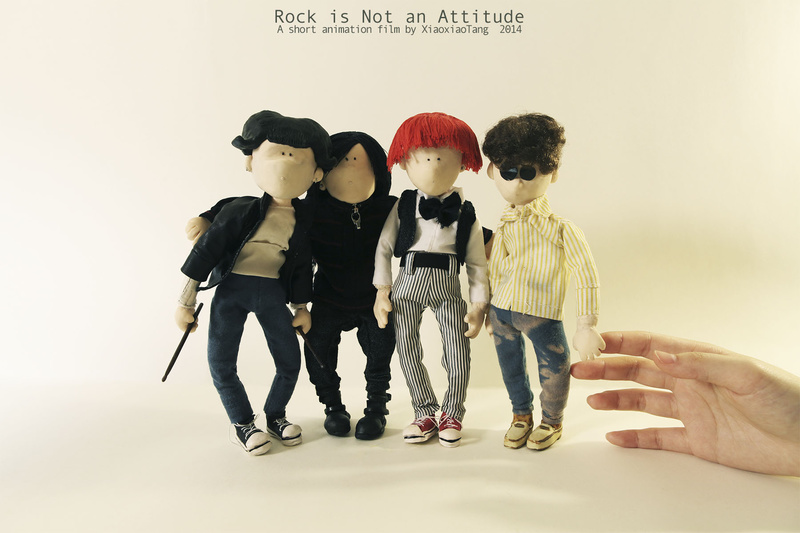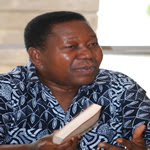Jonathan LaPoma is an award-winning (67 awards and honors!) screenwriter and a novelist. He submitted his screenplay to ROFFEKE:
“Thank you so much for submitting your screenplay to ROFFEKE. I have read the first ten pages and really enjoyed it. It reads well, is quite engaging and hints at a rock 'n' roll/music theme. Unfortunately, I will have to decline because we are currently only accepting screenplays that are ten pages long, maximum. However, if you are interested, I would still love to interview you for the ROFFEKE blog.”
Jonathan was gracious enough to agree to the interview.
ROFFEKE: What inspired you to write "A Noble Truth"?
JONATHAN: A NOBLE TRUTH was my first screenplay, and it's very loosely based on a road trip I took with a friend after graduating college. While the majority of the events in the script are made up, the tension between the two characters is similar to the tension between me and my friend while we were on this trip. I built upon that tension, and centered the script around the idea that, when we move towards our suffering rather than away from it, we can start to understand our misery and take steps to overcoming it. I wanted to use the script as a means to challenge people into looking at the negative forces inside of themselves holding them back from peace and success in their lives, and to see what the effects might be on society if a large number of people were to do this.
ROFFEKE: How long did it take you to write it?
JONATHAN: I wrote the first draft of A NOBLE TRUTH in about six weeks. I spent the first two weeks reading David Trottier's THE SCREENWRITER'S BIBLE (which I highly recommend) to learn how to format the script, then I actually wrote the script over the next four weeks. I did so many revisions to it over the next few years that I've lost count. The script is almost entirely different now from the first draft, but it took that amount of time to become what it wanted to be. Some scripts come together quickly in a matter of days, but A NOBLE TRUTH required more time to get all of the elements right.
ROFFEKE: Briefly, what's your writing process like?
JONATHAN: When I get an idea for a script, I'll let it germinate in my mind for some period of time where I pick it apart to see if it has the legs to stand on its own as a script. If it passes this test, then I usually write an informal outline with rough sketches of the scenes. Once I have that, I start writing. Sometimes the script comes together quickly (I wrote THE WAY BACK HOME in about five days), and sometimes it takes more time (DELLWOOD took about eight months). Once I have a first draft down, I'll usually try to forget about it for a few weeks, then I'll come back and re-read it to get a better understanding of what it is I've written. I'll then think of what it is I'm trying to say with the script--what important message lies underneath it all--and I'll do some shaping and pruning to better bring this message to the surface. After that, I'll go through it a few more times to make sure I've formatted everything correctly, that there are no typos, that the jokes and/or insights are fresh and original, that I've done my best to accentuate the personalities/journeys of the characters, etc... Then I submit to contests and see what they have to say.
ROFFEKE: "A Noble Truth" features a songwriter. You yourself have written approximately 60 songs. Your short story "A Sacrifice to the God of the Blues" is loosely based on a road trip you took with a friend. "A Noble Truth" features a road trip. How much of you/your life finds its way into the screenplays, songs, poems and novels you write?
JONATHAN: Pretty much everything I've written has been based on some event I've experienced that has had a profound effect on me, whether positive or negative. If something can cause such a stir inside of me, I figure other people will also be able to relate with it in some way, even if they're not consciously aware of it. Some of my stories/poems/songs are very close to real events that have happened in my life, and others are complete fabrications--but even those fabrications are based on real emotions I've felt.
ROFFEKE: You have won numerous awards for your screenplays. What's your secret to screenwriting success?
JONATHAN: Well, the most important thing is to write a great script. While "great" is subjective, if you can write a script with strong, unique characters, a fresh, compelling storyline, and with some insight into the human condition, you're well ahead of the curve.
Once you have a great script, I recommend researching the various competitions out there to see which might be a good fit. If you've written a sports story, look for festivals/competitions that have a sports theme. If you've written a thriller, look for festivals/contests that are looking for thrillers. There are thousands of contests out there, so even if you've written an abstract, inaccessible art house piece, you're bound to find at least one looking for your kind of work. I'd recommend getting on FilmFreeway if you haven't already done so. You can look up thousands of contests and submit to them as well.
ROFFEKE: Advice for aspiring screenwriters?
JONATHAN: Know your story. I think that's the strongest advice I can give to a fellow screenwriter. The screenwriting community is filled with "gurus," and how-to books, and writers groups, and coverage services just waiting to tell you exactly what's wrong with your work, for a fee of course! If you don't know your script, you may be advised into editing the best parts out of it and replacing them with meaningless, formulaic drivel (or, maybe, inspired, insightful moments of genius, but that just don't work for your story). That's not to say that these groups, book, etc... have no merit.
I've received a lot of great advice from other members of the screenwriting community (Jacob Krueger Studio being one of these--I highly recommend checking him out), but that's because I know my scripts and I know what advice will work and what won't. The majority of the bad advice I usually get has more to do with the tastes of the person giving it than it does with actual story/character problems with my scripts.
If you take everyone's advice, you may quickly find that your story is no longer yours and becomes something you never intended to write. I see a lot of other screenwriters who take this advice to heart and quickly make changes without thinking about whether those changes will improve their story. I think a lot of this has to do with insecurity. There's a lot of shame out there, and those who are the most insecure run the risks of being steamrolled by it.
Again, that's not to say that good advice doesn't exist, because it absolutely does and has benefited my writing, but if you don't know your story, you run the risk of never knowing your story.To prevent against this, ask yourself why you decided to write your script in the first place. What about it is intriguing? Inspiring? Original? What about it shows your unique perspective of the world? Hold onto that information and let it guide you when you feel as though you're getting lost in the sea of advice, and it just might guide your script into production some day.
For more information about Jonathan and his work, check out his website
Monday, January 18, 2016
Subscribe to:
Comments (Atom)



























































































































































































